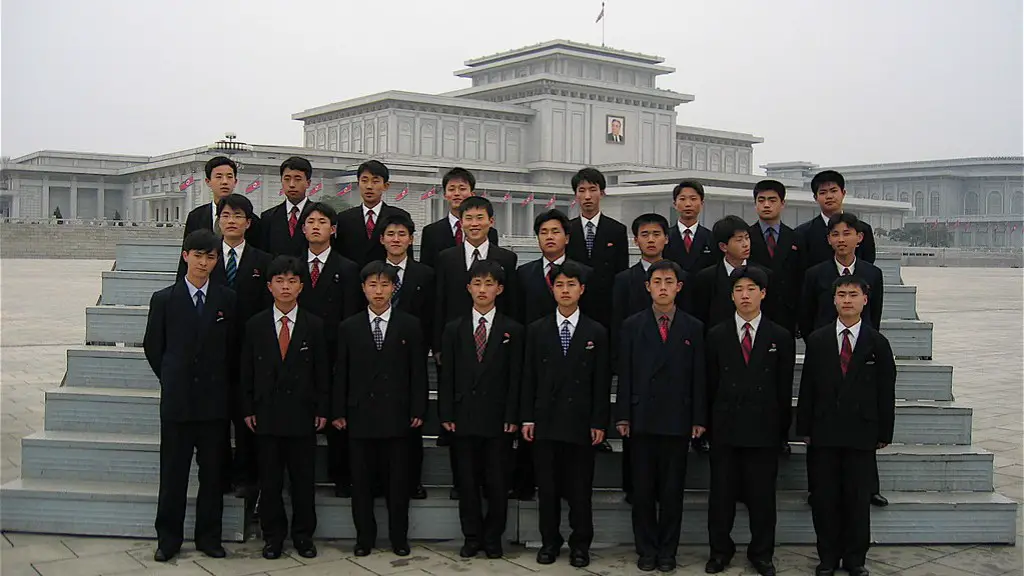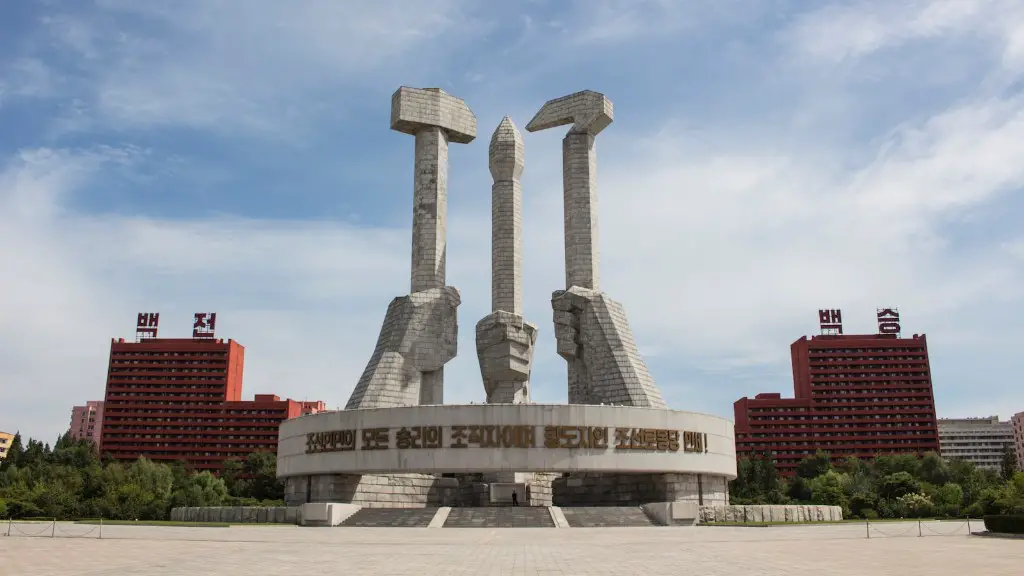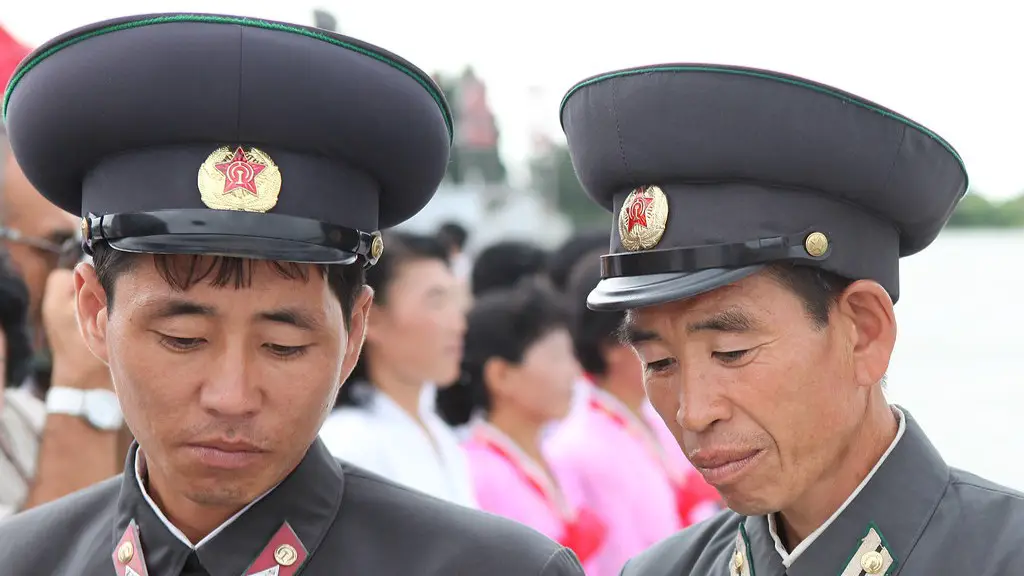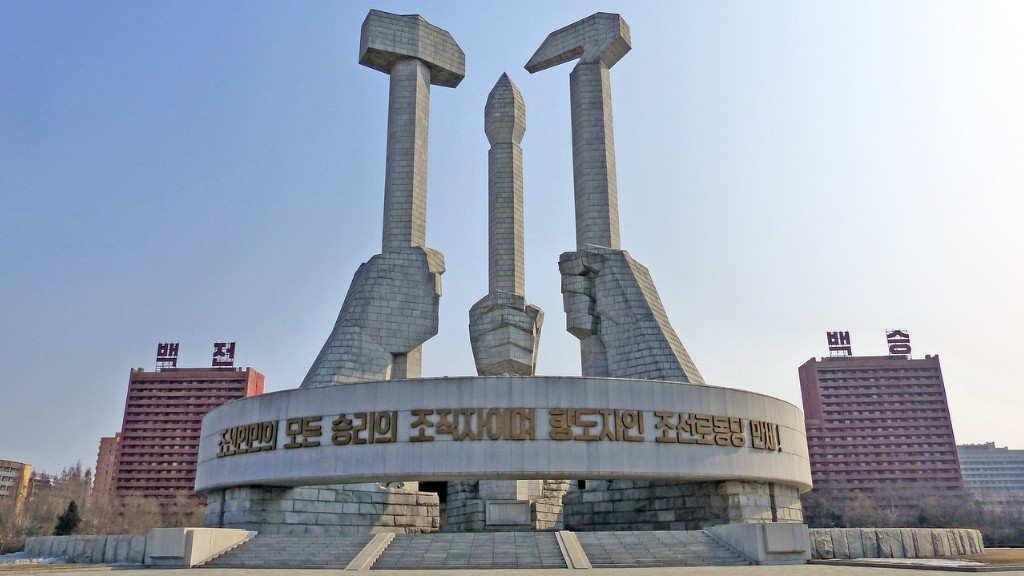What is North Korea’s stance?
North Korea has a long history of hostility towards the United States, particularly since the end of the Korean War in 1953. Its official stance is that it is an independent, socialist state and a party to the Armistice that ended the war, which it often claims not to recognize. It refers to the United States and its allies as the “imperialist aggressors”.
The North Korean government and its military have issued several warnings and threats towards the United States. In recent years, North Korea has conducted numerous missile tests that have drawn the ire of the United States and other countries. It has also conducted several underground nuclear tests. Recently, the North Korean government has increased its rhetoric, referring to the United States as its “main enemy”.
Has a War Been Declared?
The short answer is no. North Korea has not declared war on the United States. However, it is true that the current environment is extremely strained. The United Nations, as well as the United States, has placed numerous sanctions on North Korea in response to their continued missile and nuclear tests.
The United States has also conducted military exercises in the region and has warned North Korea of the consequences of a potential war. The United States maintains a strong presence in the region in order to deter any potential aggression and has deployed additional troops in an effort to further strengthen its deterrence.
International Response
The United Nations has imposed several resolutions and sanctions against North Korea in an effort to stop its nuclear weapons program. As a result, North Korea’s economy has suffered, and the country is heavily sanctioned. The international community has also condemned North Korea’s threats towards the United States and condemned its missile tests.
The global response to North Korea’s threats has been largely unified, with members of the United Nations, the United States, and other countries strongly opposing North Korea’s actions. In addition, the United States has strongly warned North Korea against any acts of aggression.
Will There Be War?
At this point, it is highly unlikely that North Korea will declare war on the United States. North Korea appears to be aware of the consequences of a potential war, and its leaders likely realize the risks of such an action. Additionally, the United States has maintained a strong presence in the region, and its allies in the region remain committed to deterring any aggression.
Despite the tensions, both sides appear to be avoiding an escalation of hostilities, and the United Nations and other countries have urged for restraint. It is important to note, however, that the situation between North Korea and the United States remains volatile and that a conflict is still possible.
US Policy Toward North Korea
The United States has maintained a policy of deterrence toward North Korea in an effort to avoid war. This policy is based on the belief that a war would be disastrous for both countries, as well as for the region. The United States has also maintained a policy of diplomatic engagement with North Korea in an effort to bring about a peaceful resolution to the tension in the region.
In recent years, the United States has increased its sanctions on North Korea in response to their nuclear and missile tests. Additionally, the United States has conducted military exercises in the region in an effort to deter North Korea from engaging in any hostilities.
Impact of Sanctions
The sanctions imposed by the United Nations and the United States have had a significant impact on North Korea’s economy. In recent years, North Korea’s economy has contracted significantly due to the sanctions, and its citizens face increasing levels of poverty and shortages of food and medicine.
In addition, the sanctions have limited North Korea’s access to international markets and foreign capital, further limiting its economic prospects. It is likely that the effects of the sanctions will continue to be felt in the near future, further complicating the already tense relationship between North Korea and the United States.
Effects on Other Countries
The tensions between North Korea and the United States have also had a ripple effect on other countries in the region. South Korea, for example, has been directly affected by North Korea’s threats and has increased its defense spending in response. Japan has also increased its military spending and has deployed additional forces in the region.
The other countries in the region, including China, Russia, and South Korea, have also been reluctant to support any military action against North Korea. These countries have instead called for a diplomatic solution and have urged both sides to take steps to de-escalate the situation.
Resolution Possibilities
At this point, the situation between North Korea and the United States remains uncertain. It is unlikely that North Korea will declare war on the United States, but it is also unlikely that the situation will de-escalate anytime soon. However, it is possible that the United Nations, or another outside mediator, could broker a diplomatic settlement between North Korea and the United States.
This diplomatic settlement could involve the lifting of sanctions, the cessation of hostilities, and a series of other measures that could help to ease tensions in the region. It is also possible that North Korea and the United States could enter into negotiations and work towards a peaceful resolution of their disputes.
Prospects for the Future
While it is clear that the situation between North Korea and the United States remains tense, it is also clear that a war is unlikely. The United Nations, along with the United States and other countries, have been calling for a peaceful resolution to the dispute, and both sides have been demonstrating an openness to a diplomatic solution. It is possible that, with continued international pressure, North Korea and the United States could reach an agreement that would bring an end to the current tensions.
That said, it is also important to remember that the situation is extremely volatile, and a sudden escalation of tensions is still possible. Therefore, it is essential that all sides continue to take steps to de-escalate the situation and avoid a potential conflict.




